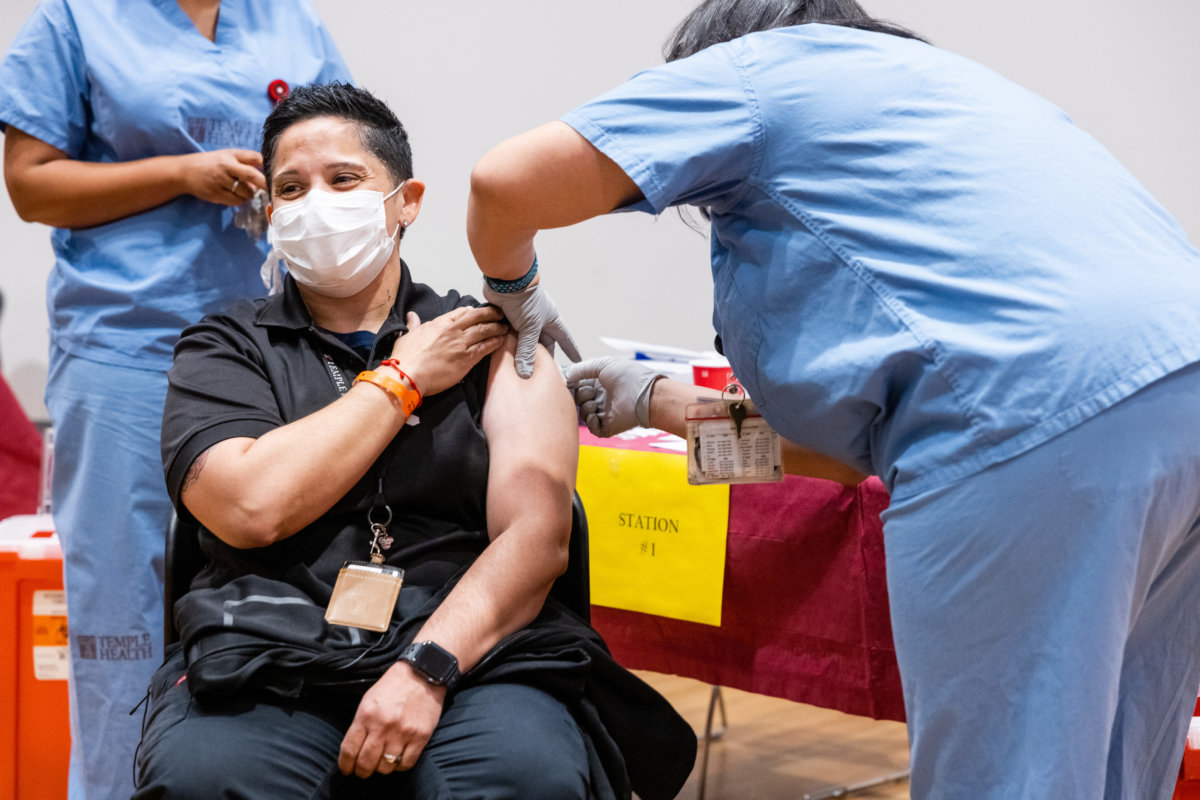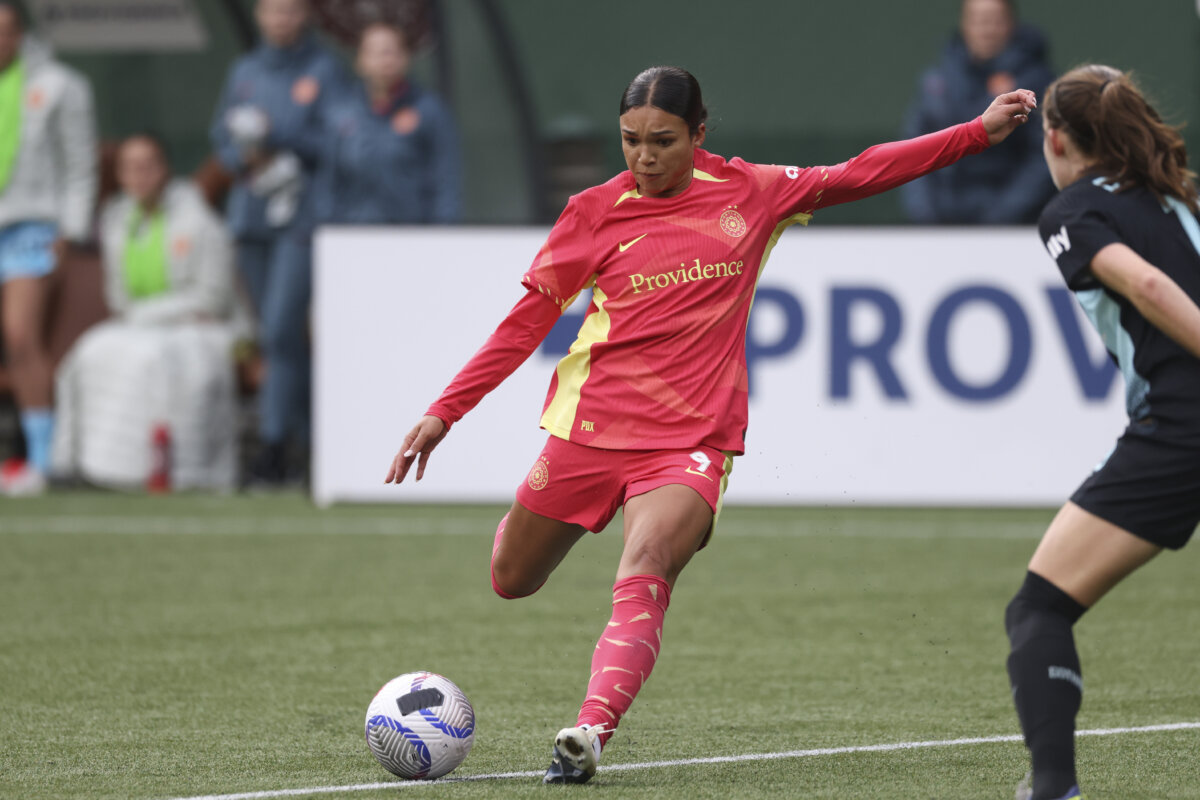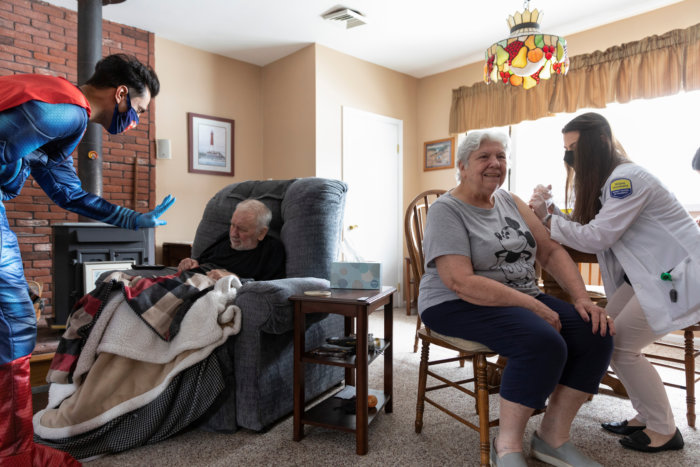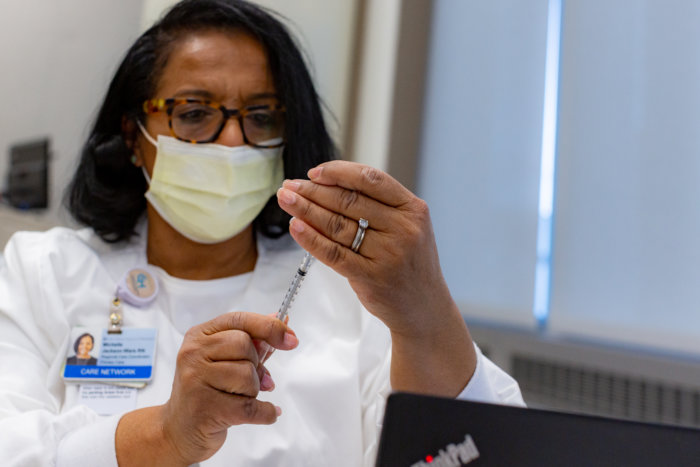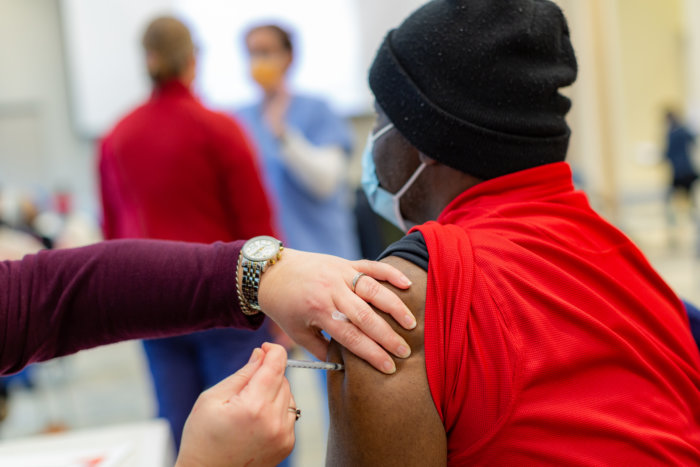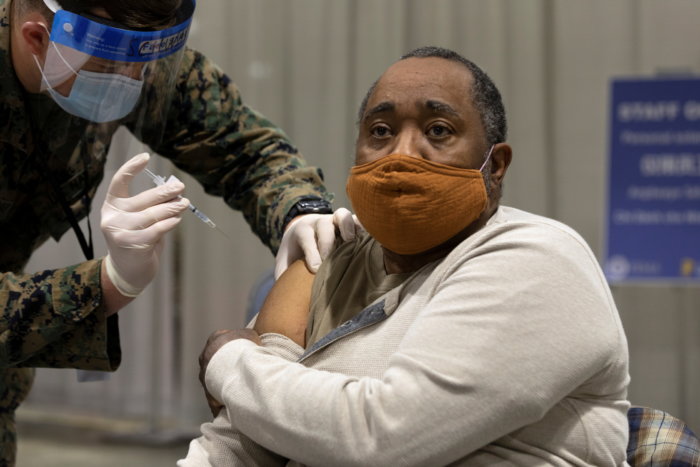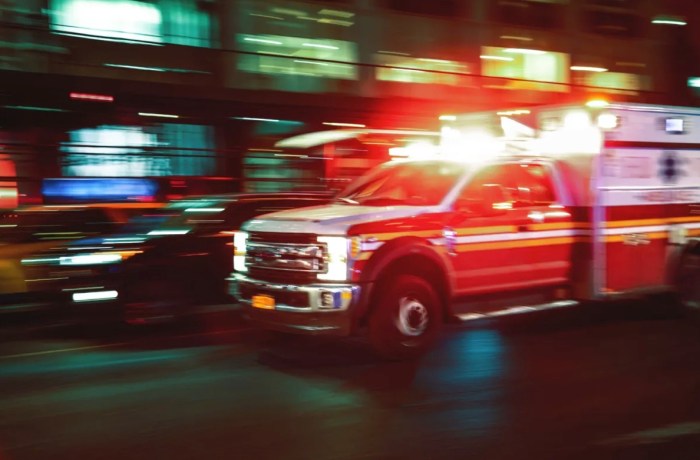State Health Secretary Rachel Levine said the first stage of the COVID-19 vaccination campaign is “moving smoothly,” as thousands of healthcare workers begin receiving injections.
“So far, so good,” said Dr. Tony S. Reed, Temple University Health System’s chief medical officer, who is coordinating the vaccine distribution at the system’s medical centers.
At the university’s main hospital in North Philadelphia, staff began getting shots Wednesday, and, on Thursday, it hosted an all-day clinic. The vaccine is also now being administered at Jeanes Hospital and Fox Chase Cancer Center, part of Temple’s network.
Reed said employees have been excited. One employee proudly displayed Anthony Fauci socks Wednesday, he said.
“It’s been a trying time these last two or three weeks,” he said. “The vaccine coming here and now could not have happened at a more opportune time.”
Vials of Pfizer’s COVID-19 injection continue to arrive in Pennsylvania, and Levine said nearly 100,000 doses will be delivered by Friday at 87 hospitals.
There’s been no reports of serious side effects in the commonwealth, and Wednesday’s snowstorm has not delayed shipments, she said.
“While we are at the start of the road out of this pandemic, our light is at the end of the tunnel, our path is long, and it will take time,” Levine cautioned.
She said Pennsylvania is still dealing with the fall-out of a Thanksgiving surge. The state registered nearly 10,000 new cases Thursday and 224 additional virus-related fatalities. In Philadelphia, there were 917 cases and six deaths.
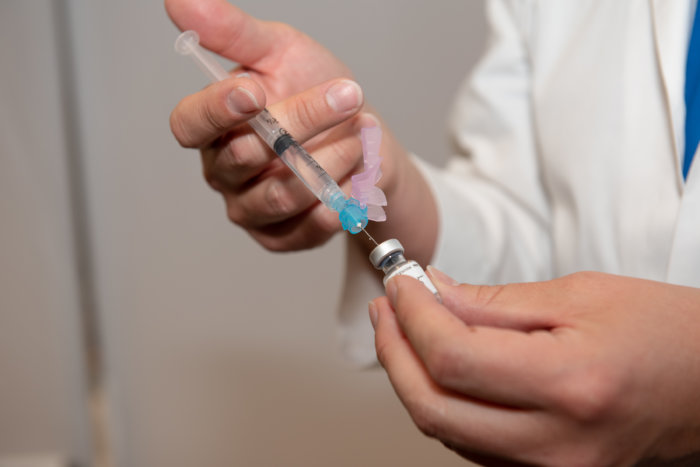
“I think it is critically important, as we approach Christmas and New Year’s, that people really listen to the messages that we’re putting out there,” Levine said during a virtual press briefing. “I think it’s critical that people stay home.”
Medical workers who are routinely exposed to COVID-19, along with nursing home residents and staff, are the top priority for the initial round of vaccines.
Federal leaders have partnered with CVS and Walgreens to administer injections at nursing homes, and Levine said that part of the campaign is expected to begin Dec. 28 in Pennsylvania.
About half of Pfizer’s shipments to the commonwealth will be diverted from hospitals to the pharmacies’ distribution centers, she added. The Moderna vaccine, expected to receive federal authorization in the coming days, will be directed to hospitals.
Inmates and correctional officers, Levine said, will have the opportunity to be inoculated in roll-out’s second phase, which will also include critical infrastructure workers.
More than 3,500 state prison inmates are actively battling coronavirus, as are 288 employees, according to data from the Pennsylvania Department of Corrections.
Temple, Reed said, received 2,000 doses and expects to get the same amount next week. People who work in the COVID-19 units are being prioritized for vaccination, followed by emergency room employees and labor and delivery staff.
Next month, the health system plans to administer 4,000 to 5,000 injections a week, as people return for their second dose, Reed said. They also expect their allocation to rise to 3,000 a week.
The injection is voluntary at Temple, and everyone receiving it now is enthusiastic. But Reed expects some are hesitant, and he said his team will likely begin engaging with them in mid-January about why they haven’t received the vaccine.
He said he hopes the first round of vaccinated employees are Temple’s “best messengers,” encouraging people in their departments to sign up for the vaccine.
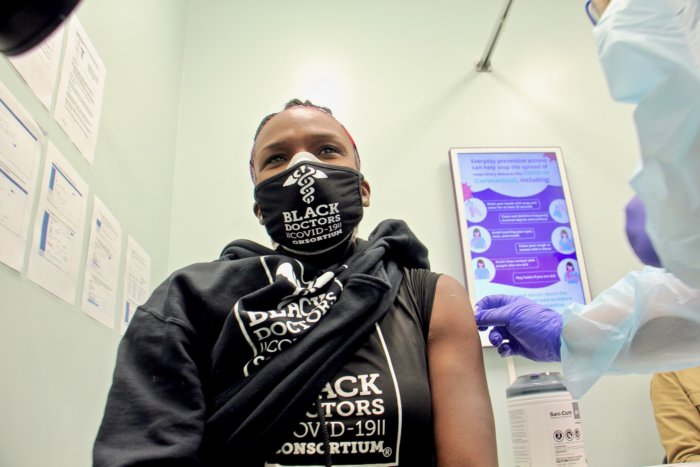
Dr. Ala Stanford, of the Black Doctors COVID-19 Consortium, which has conducted 20,000 virus tests in the Philadelphia region, was vaccinated Wednesday. It was a difficult decision, and she went back-and-forth and prayed about it.
“Walking into the room, I was a little nervous,” she said. “In the moment, I just felt complete relief, so much so that I didn’t even feel the needle.”
Stanford previously tested positive for the virus, but she wanted to get it to be a model for her family and members of the Black community.
The antibodies that a person gets when they overcome COVID-19 don’t last forever, she noted, and the Centers for Disease Control and Prevention is recommending people get the vaccine even if they have tested positive in the past.
Stanford understands why Black residents, who have dealt with bias in the healthcare system, might be hesitant about getting the injection. However, she said, they are also more likely to die if they catch the virus.
“Healthcare professionals have got to talk to people who are hesitant,” she said. “Most times it’s about fear, and most times you have the knowledge to educate someone that could make the difference for them in saying ‘yes’ when it’s time to get the vaccine.”
Medical workers have seen the realities of the pandemic, and it’s telling that so many are rushing to get the injection, Reed said.
To those who vow never to get the shot, Reed added, “My request is, keep an open mind. Find the credible resources. Listen to the health and medical experts and then make your decision.”



